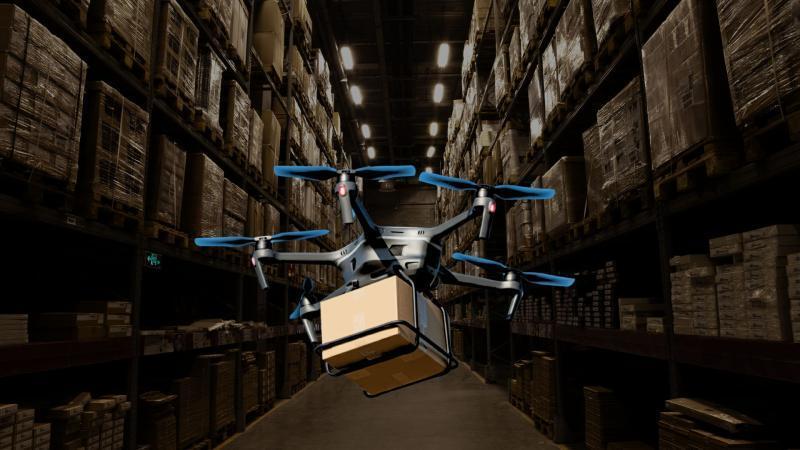
New Tech Optimizes Drone Fleets for Faster, Greener Deliveries
The rise of drone technology has revolutionized the logistics industry, promising faster and more efficient delivery options for consumers. However, as the use of drones for last-mile delivery continues to grow, so do the challenges associated with managing these fleets. One critical issue is the “Drone Warehouse Problem,” which refers to the difficulty of efficiently scheduling and organizing drone deliveries from warehouses to customers. A team of researchers has recently developed a novel algorithm that tackles this problem, enabling warehouses to manage varied drone fleets and deliver parcels faster while reducing their environmental impact.
The “Drone Warehouse Problem” is a complex challenge that arises from the need to balance the speed and efficiency of drone delivery with the logistics of managing a fleet of drones. With multiple drones taking off and landing at the same time, managing the flow of drones in and out of the warehouse can be a logistical nightmare. This problem is exacerbated by the need to ensure that drones are properly maintained, inspected, and recharged between flights.
To address this challenge, researchers have developed a novel algorithm that optimizes drone delivery schedules and streamlines the drone management process. The algorithm, known as the “Drone Fleet Scheduling Algorithm,” uses advanced machine learning techniques to analyze the flight patterns and capacities of individual drones, as well as the location and priority of delivery packages.
The algorithm works by first identifying the most efficient route for each drone to take, taking into account factors such as wind resistance, air traffic control restrictions, and package size and weight. It then schedules the drones to take off and land at specific times, minimizing overlap and ensuring that each drone is used to its full capacity.
The benefits of the Drone Fleet Scheduling Algorithm are twofold. Firstly, it allows warehouses to manage their drone fleets more efficiently, reducing the time and resources required to schedule and coordinate drone deliveries. This enables warehouses to handle a higher volume of deliveries with fewer resources, making them more competitive in the market.
Secondly, the algorithm enables warehouses to optimize their drone routes and schedules to reduce fuel consumption and lower their environmental impact. By minimizing the distance and time that drones spend in the air, the algorithm reduces the amount of fuel burned and the amount of greenhouse gases emitted. This not only benefits the environment but also helps to reduce operating costs for warehouses.
The potential impact of the Drone Fleet Scheduling Algorithm is significant. With the ability to manage drone fleets more efficiently and sustainably, warehouses can scale their operations to meet the growing demand for last-mile delivery services. This could lead to faster and more reliable delivery times for consumers, as well as reduced costs and environmental impact for warehouses.
The researchers behind the algorithm have already demonstrated its effectiveness in simulations and real-world pilots. In a recent study, the team used the algorithm to manage a fleet of 20 drones delivering packages to customers in a mock warehouse environment. The results showed that the algorithm was able to reduce fuel consumption by 30% and delivery times by 20% compared to traditional scheduling methods.
The development of the Drone Fleet Scheduling Algorithm is a significant step forward in the development of scalable and sustainable last-mile delivery solutions. As the use of drones for delivery continues to grow, the need for efficient and eco-friendly management solutions will only increase. With this algorithm, warehouses can ensure that their drone fleets are optimized for speed, efficiency, and sustainability, providing customers with faster and more reliable delivery options while reducing their environmental impact.
Source:
https://researchmatters.in/news/novel-algorithm-tackles-drone-warehouse-problem-faster-deliveries






